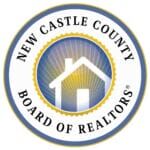Professional Standards
The New Castle County Board of REALTORS® is not licensed to practice Delaware law but is able to offer an Ombudsman Program and an Ethics Complaint Process to assist your dispute management needs. Click the tabs at the bottom for more information.
If you feel there has been a violation of State Licensing Law, please contact the Delaware Real Estate Commission.
Additional Information on Ethics Complaints, Arbitration Requests and Related Information from the National Association of REALTORS® HERE
Any questions can be directed to:
302.762.4800 ext. 116
The Ombudsman Program, in its simplest definition, is informal telephone mediation. If you decide to proceed with an Ombudsman, he/she will serve as a mediator between both parties. An Ombudsman will listen to your concerns and explain possible avenues that might resolve the issue or reach a desired outcome. If you are unsatisfied or unable to come to a resolution, then you may proceed with an Ethics Complaint.
New Castle County Board of REALTORS® is responsible for enforcing the REALTOR® Code of Ethics. The Code of Ethics ensures that consumers are served by requiring REALTORS® to cooperate with each other in furthering clients' best interests.
Please read the following important background information:
- Boards and associations of REALTORS® are responsible for enforcing the REALTORS® Code of Ethics. The Code of Ethics is a Code of Conduct expected of real estate professionals who choose to become REALTORS®.
- Many disputes result from misunderstanding, miscommunication, or lack of adequate communication. If you have a problem with a real estate professional, you may want to speak with them directly or with a principal Broker in the firm. Open, constructive discussion often resolves questions or differences, eliminating the need for a formal complaint.
- In addition to processing formal ethics complaints against its REALTOR® members, many boards and associations offer informal dispute resolving processes (e.g. ombudsmen, mediation, etc.). Often, parties are more satisfied with informal dispute resolution processes as they are quicker, less costly, and often help repair damaged relationships.
You will want to keep in mind:
- Only REALTORS® are subject to the Code of Ethics of the National Association of REALTORS®.
- Associations determine whether the Code of Ethics has been violated, not whether the law or real estate regulations have been broken.
- Associations cannot require REALTORS® to pay money to parties filing ethics complaints; cannot award "punitive damages" for violations of the Code of Ethics; and cannot suspend or revoke a real estate professional's license.
- Ethics complaints must be filed within 180 days after the facts constituting the matter complained of could have been known in the exercise of reasonable diligence or within 180 days after the conclusion of the transaction, whichever is later.
Article 17 of the National Association of REALTORS® Code of Ethics
"In the event of contractual disputes or specific non-contractual disputes defined in Standard of Practice 17-4 between REALTORS® (principals) associated with different firms, arising out of their relationship as REALTORS®, the REALTORS® shall submit the dispute to arbitration in accordance with the regulations of their Board or Boards rather than litigate the matter.
In the event clients of REALTORS® wish to arbitrate contractual disputes arising out of real estate transactions, REALTORS® shall arbitrate those disputes in accordance with the regulations of their Board, provided the clients agree to be bound by the decision.
The obligation to participate in arbitration contemplated by this Article includes the obligation of REALTORS® (principals) to cause their firms to arbitrate and be bound by any award."
Arbitration Manual
The Code of Ethics and Arbitration Manual is used by REALTOR® Associations to ensure due process while conducting hearings to enforce NAR Code of Ethics and the arbitration of contractual and specific non-contractual disputes as defined in Standard of Practice 17-4 arising out of the real estate business.
The request for arbitration must be filed within one hundred eighty (180) days after the closing of the transaction, if any, or within one hundred eighty (180) days after the facts constituting the arbitrable matter could have been known in the exercise of reasonable diligence, whichever is later.
Most arbitration requests concern procuring cause or entitlement to the disputed funds. There are several factors that go into determining procuring cause, not just one factor.
When filling out the Request and Agreement to Arbitrate you will need to name the REALTOR® principal(s) of the office with whom you have the dispute; this can be the Broker of Record, Managing Broker, or both. Team leaders should not be listed unless they are the Broker of Record or the office’s Managing Broker. Be sure to name all the REALTOR® principals that you feel should be included to be held responsible for the amount in question.
You will need to include all requested documentation including a narrative that outlines the series of events, any supporting documentation, and a filing fee deposit of $500.00 (Check payable to NCCBOR).
To access an electronic version of the 2025 Code of Ethics and Standards of Practice of the National Association of REALTORS® Click HERE.
Arbitration complaints go to mandatory mediation.
